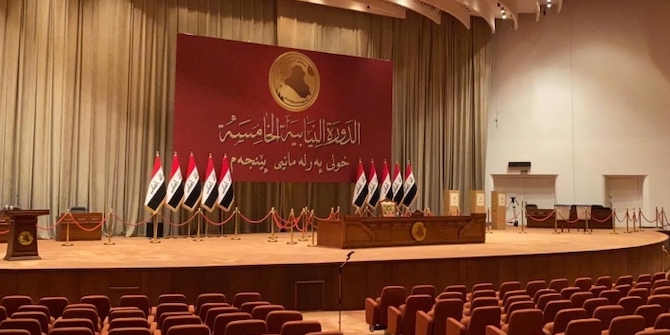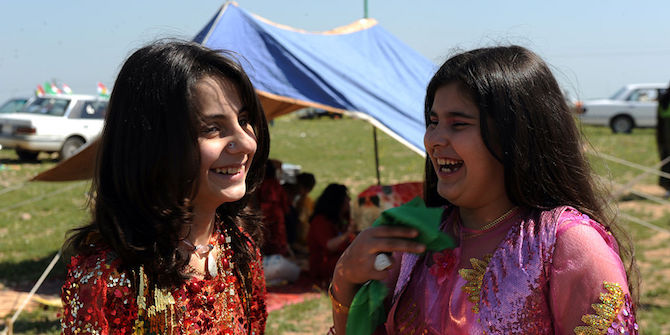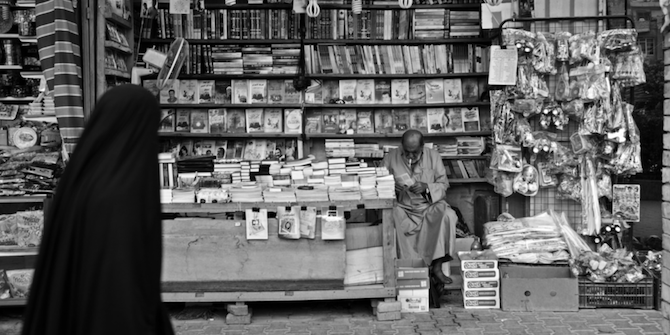by Shivan Fazil

As the fraught process of forming a new Iraqi government gets underway, the country’s political elite should reflect on how their approach to power-sharing has weakened successive governments, and brought the country to a critical pass.
Boycotts, threats, missed deadlines, the process of forming a new Iraqi government is taking a depressingly familiar turn.
Since 2003 an informal agreement among Iraq’s elite, known as the muhasasa ta’ifiya, has enshrined power-sharing between the country’s various ethnic and religious groups. As a result, governments are formed by horse-trading over influential or potentially lucrative posts, budget allocations and staffing. Policy and development priorities for the country tend to take a back seat.
The results have not been good for Iraq and its citizens, who have taken to the streets to vent their increasing frustration, and brought down the government in 2019.
With the Covid-19 pandemic and a plunging oil price in 2020 adding to the country’s already profound social and economic problems, the new government formation process that formally started in January, following a general election held last October, must take a different course.
On 8 February, the new parliament was due to elect a new president, the next step in government formation after the re-election as speaker of Mohamed Al-Halbousi on 10 January, along with two deputies. While since 2003 the presidency has been informally reserved for a Kurd, political wrangling between the ruling Kurdish parties, and between the largest Shia party, led by Muqtada al-Sadr – who wants to form a majority government with the support of the Kurdistan Democratic Party (KDP) and the two main Sunni blocs – and a group of Shia parties, known as the Coordination Framework, that oppose their exclusion from the next government, has led to a stalemate.
On February 13, Iraq’s supreme court barred Hoshyar Zebari, the nominee of the KDP from running for presidency. Zebari had been ousted from the post of finance minister in 2016 after allegations of corruption. The result is another deadlock, and perhaps weeks of further public disputes and backroom deals.
While this is happening, Iraq struggles without a functioning government.
Obstacles to Reform
Iraq faces an array of political and socio-economic challenges that are intertwined and mutually reinforcing. The inadequacy and unavailability of services such as electricity, healthcare and water are among the main grievances that regularly fuel protests. Corruption is endemic throughout the political system, thanks to oil rents and the absence of accountability and a viable banking system.
The shortfalls in basic services and economic opportunities are now interacting with the increasing impacts of climate change, as drought and associated environmental degradation have eroded rural livelihoods in the historically poorer south, a hotspot for anti-government protests. This has in turn led rural people to migrate to informal, unplanned settlements on the margins of Iraqi cities, further straining municipal resources.
The dismal condition of public services and the country’s crumbling infrastructure are symptomatic of the state’s weakness, government inertia and the failure of the post-2003 political order.
Jostling for power between Iraq’s ethnosectarian elites has come at the cost of effective management of public resources, stymieing economic growth, good governance and the provision of public services. These elites have consistently undermined efforts to phase out the muhasasa and partisan interference in public services.
Political compromise has produced weak governments without the authority to formulate a long-term national development plan with which successive governments can align their programmes. Instead, new governments tend to scrap the plans and strategies developed by their predecessors. They formulate short-term sectoral plans from scratch and install new management teams to implement then. Lack of continuity in reform from one government to another thus constitutes a major impediment to progress.
A Stark Choice: Change or Fail
The next government has a chance to do better. For one thing, despite the muhasasa ta’ifiya it must broker agreement among Iraq’s elites to insulate key functions of state from politics. Independent technocratic entities are needed that can oversee the management and implementation of long-term strategies that survive changes in government.
For another, it must prioritise continuity in the management of key sectors. Its default setting should be to push forward the reform plans and strategies outlined by its predecessors with the support of the international community, and to leave competent teams in place. Parliamentarians—especially those who emerged from the protest movement and are planning to challenge the muhasasa by staying out of the next government and forming an opposition bloc—must support the government in pressing ahead with the long overdue reforms.
As long as Iraq’s political elites carry on their business-as-usual approach and resist efforts to get the country back on track, the outlook for Iraq’s economy, and for Iraqi households’ well-being, will continue to darken. Public anger will certainly send Iraqis en masse back to the streets and squares, likely toppling yet another government.
The impact on the stability of such a fragile country may become impossible to ignore.







22 Comments